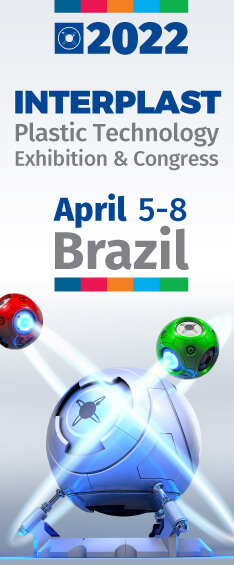| Plastics News |
Plastics Europe supports new report’s call for faster systemic change towards circularity and net zero carbon emissions
Report calls for a new and enabling policy framework to incentivise net zero investment and innovation April, 4, 2022 - Plastics Europe, the voice of plastics manufacturers in Europe, welcomes an extensive new independent report on “ReShaping Plastics: Pathways to a Circular, Climate Neutral Plastics System in Europe”. The Brussels based association supports the report’s central findings that faster systemic change and more intense and effective collaboration between all parts of the European plastics’ system and policy makers are essential, and it agrees that circularity is the most important medium-term lever for a comprehensive transition of the industry. To support the assessment and implementation of the findings, and further accelerate change, Plastics Europe proposes a package of measures including support for the report’s recommendation for a new and enabling policy framework that better incentivises investment and innovation by fostering a climate of creative competition. The “ReShaping Plastics” report, launched today, was developed by SYSTEMIQ with the support of an independent Steering Committee and Expert Panel that included representatives of EU institutions, NGOs, academia and industry. Europe’s plastics manufacturers commissioned the report to help them respond most effectively to the severity of the climate crisis and challenge of plastics waste. The study’s aim was to critically evaluate current progress and assess the potential of different levers to help transition towards the EU’s net zero carbon emissions and circularity goals by 2050. The report explores a series of scenarios based on current publicly available market data on innovations, commitments and policies that are underway and in the pipeline. It also makes projections about how these different elements, including emerging technologies, may play out over a long time-period. The report confirms that circularity is a key driver of system emissions reduction in the short to medium term. It further highlights the need for all up- and down-stream levers to be engaged, including mechanical and chemical recycling, the use of alternative raw materials such as bio feedstocks, and designing products for recycling and reuse. This also includes access to sufficient low-carbon and renewable energy – all essential drivers in reducing plastics waste and enable significant GHG reductions. It also establishes that faster systemic change requires significant short and longer-term investments from different private and public actors, as well as further technological innovations, new infrastructure, and business models. On the other hand, the authors confirm that the substitution of plastics with other materials provides very limited scope for reaching net zero emissions. Speaking at the launch event, Dr. Markus Steilemann, President of Plastics Europe, said: “The plastics industry has an important role to play in cutting emissions, reducing waste and increasing circularity. It is high time to replace fossil feedstocks by circular raw materials with a significantly lower carbon footprint. The new report shows a range of options and scenarios to get there which we will carefully examine. Of course, we do not yet have all the answers to the challenges we face. That’s why we support the report’s calls for more intense and effective collaboration with our value chain and policy makers.” Steilemann continued: “It is encouraging that the report recognises the vital role plastics play in achieving the EU´s broader net zero emissions goals. They help deliver emissions savings in other key sectors like construction, automotive, packaging and medical, and they are indispensable for the development of renewable energy technologies.” Plastics manufacturers are under no illusions about the scale and complexity of the transition and have been investing and innovating to address the issues across the whole plastics’ system for a long time. They are already working with partners in the plastics value chain to deliver new systems thinking, mindset and behavioural changes, higher performing products, eco-design innovation and new infrastructure. They are also driving major advances in the sustainability of operations, including investing in advanced recycling technologies, renewable energy and producing more plastics from bio feedstocks and other potential sources of carbon such as CO2 capture. This transition has accelerated in recent years, although long-investment cycles mean that it will take a number of years before the full benefits become apparent. Virginia Janssens, Managing Director of Plastics Europe added: “Our members are undertaking huge investments and a far-reaching reorganisation of their production and technology base. To further accelerate the industry’s transition, we need a new and enabling policy framework that better incentivises investment and innovation by fostering a climate of creative competition. We must harness the power of the EU Single Market and find workable mechanisms and measures to keep the European industry globally competitive as the EU transitions to net zero.” To be successful, this new and enabling environment must ensure the availability of high-quality feedstock, as well as sufficient access to affordable, abundant renewable and low carbon energy. This will require a policy framework which is stable, long-term-oriented, and consistent across Member States while supporting the industry’s need to innovate in a rapidly evolving world. Plastics Europe is proposing a package of measures to help implement the report’s recommendations and accelerate the industry’s transition to net zero carbon emissions and full circularity. These include:
For more information, consult the dedicated page: https://plasticseurope.org/reshaping-plastics/ SYSTEMIQ’s Press Release can be found here. Source: Plastics Europe |


